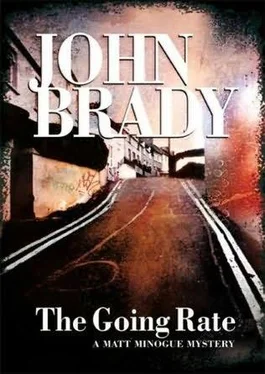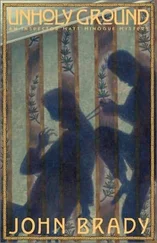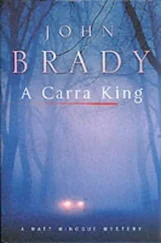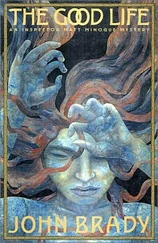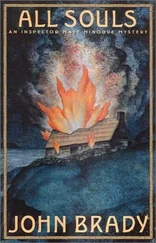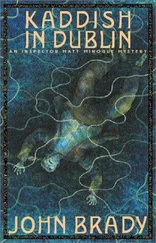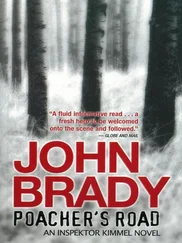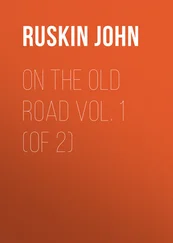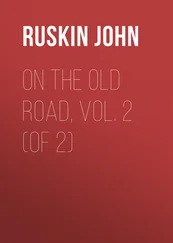John Brady - The going rate
Здесь есть возможность читать онлайн «John Brady - The going rate» весь текст электронной книги совершенно бесплатно (целиком полную версию без сокращений). В некоторых случаях можно слушать аудио, скачать через торрент в формате fb2 и присутствует краткое содержание. Жанр: Полицейский детектив, на английском языке. Описание произведения, (предисловие) а так же отзывы посетителей доступны на портале библиотеки ЛибКат.
- Название:The going rate
- Автор:
- Жанр:
- Год:неизвестен
- ISBN:нет данных
- Рейтинг книги:4 / 5. Голосов: 1
-
Избранное:Добавить в избранное
- Отзывы:
-
Ваша оценка:
- 80
- 1
- 2
- 3
- 4
- 5
The going rate: краткое содержание, описание и аннотация
Предлагаем к чтению аннотацию, описание, краткое содержание или предисловие (зависит от того, что написал сам автор книги «The going rate»). Если вы не нашли необходимую информацию о книге — напишите в комментариях, мы постараемся отыскать её.
The going rate — читать онлайн бесплатно полную книгу (весь текст) целиком
Ниже представлен текст книги, разбитый по страницам. Система сохранения места последней прочитанной страницы, позволяет с удобством читать онлайн бесплатно книгу «The going rate», без необходимости каждый раз заново искать на чём Вы остановились. Поставьте закладку, и сможете в любой момент перейти на страницу, на которой закончили чтение.
Интервал:
Закладка:
“I’ll have to, won’t I.”
“Christ, I hope, you know…”
“I’ll be okay. But you can see where this could go.”
Breen nodded. Then something slid into his thoughts and his face changed.
“Absolutely, yes. Okay. Let me know. Okay?”
Fanning had chosen his words carefully for this moment.
“I wanted you to know first,” he said.
Breen’s schmoozing smile appeared He leaned on toward Fanning.
“Thanks, Dermot. That means a lot to me to hear you say that. A lot.”
“This is the one. I’m sure of it.”
“If anyone can get this — I mean really get it — it’s you, Dermot. We’ll talk?”
Chapter 6
The motorway began its long, banked inland, and Sugar Loaf mountain slid into view over the trees. Minogue eyed the low clouds shrouding its peak. The rain would surely have started up on Calary Bog and its Protestant church where they were headed.
“What?” Kilmartin asked, with the urgency of the suddenly awoken.
“You were asleep.”
“I am not. What did you say before that?”
“I didn’t say anything.”
“Well you cursed. Under your breath. That I know.”
“I must have been thinking of someone else.”
A heavily loaded lorry overtook them, swaying a little as it returned to its lane. There were left-hand drive cars coming toward Dublin from the Rosslare ferry now. Many towed caravans, French a lot of them.
Kilmartin sat up, and turned in his seat.
“Oh oh,” he said. “Thought I heard something. Action stations.”
The blue lights of the Garda car came up fast in Minogue’s mirror. He checked the speed, and felt for his wallet. The squad car went by at ninety. He got a quick look at the two Guards inside. They were in traffic gear. The passenger with a mobile to his ear looked to be about twenty.
“Bigger rogues than us to be chasing. What speed were you doing?”
“Seventy something,” Minogue said. “Eighty, maybe.”
He was already anticipating the route from the turn-off at Kilmacanogue, along the Roundwood Road that climbed up to Calary Bog.
It had been months since he had been up here. The houses would peter out within a half mile of the motorway, he recalled, and then more and more rock would surface in the scruffy, marginal fields. A mile or so in, the kingdom of brambles, ferns, and furze would take over. He half-remembered views of Glencree, with whitethorn hedges and the yellow, spring-flowering gorse leaning in over the road.
“Super-cops,” Kilmartin murmured.
The squad car had taken the ramp up the overpass toward the start of the Roundwood Road. It was long gone by the time Minogue drew up to the stop sign. Descending then toward the junction, he spotted an old man, ruddy-faced and gaunt, standing in the car park of the pub. Beside him was an old Land Rover. A Wicklow collie sat in the passenger seat, apparently following its master’s lead in watching Minogue and Kilmartin. The old man’s long face had something of a horse about it, Minogue decided, especially with the breezes tossing the tufts of snowy hair that swelled out from under his tweed hat.
Kilmartin had spotted him too.
“I don’t care what anyone says,” he said. “There’s a look to them.”
Political correctness was still alien to Kilmartin, but Minogue had to admit that his friend was probably right. This was borderland after all, the edge of the Pale in former times, raider’s country. Rachel Tynan’s family name had been Weekes, a name with a distinctly Cromwellian sound to it, to Minogue’s ear.
He had often forgotten that the Tynans’ mixed marriage meant something to other people, especially because Tynan had spent a few years as a Jesuit seminarian. He had once heard a whispered superstition concerning why their marriage had remained childless.
“They’re very organized,” said Kilmartin. “That’s all I’m saying. I mean there he is, making sure that iijits like us find their way up to this church.”
The turn off the motorway seemed to have awoken Kilmartin.
“She planned it all, I heard,” he said, warming to his topic. “Mrs. Tynan, I’m talking about. Rachel, I should call her now, I suppose. She planned this place here, the event even.”
Recent years had drawn her back, Minogue had heard, and especially as her illness advanced, here to where she had spent her childhood. Those visits had resulted in a series of paintings of the bog with a grandeur of space and skies that Minogue had believed that no-one but himself had marvelled at.
He felt the tires bite loose gravel by the verge of the road.
“‘A celebration,’” Kilmartin went on. “None of this, what’s the word? None of this… lugubrious stuff. A lot to admire in that, I must say. Yourself?”
As earnest as Kilmartin seemed, his words were unconvincing to Minogue. It was long an open secret that funerals still put Irish people in quiet good humour.
Minogue said, “Couldn’t agree with you more.”
“Why’s that? — Oh I see now. You’re getting your Irish ready for the mass above. What am I saying, ‘mass.’ Christ. The ceremony, I mean. The service — the celebration. Whatever.”
Minogue had half-forgotten that the service was to be in Irish. There would be paintings, he had learned, hers and her students,’ displayed in the small church. Music was to be a big part of the event also.
The rain had come through here not so long ago. Wet ditches and half-dried roadway now ushered Minogue and Kilmartin up the narrowing road toward Calary, the Peugeot jiggling as it followed the shape of the road, leaning and swaying to its rises and dips — its very camber even, altered as it was yearly by the boggy soil beneath. Minogue struggled to detect which of the puddles might be potholes. It was no use. At least there was no oncoming traffic.
They were almost by a quarry when the bend abruptly revealed cars stopped in the road ahead. Minogue didn’t like the faint squeak from the brake pedal.
There were people out on the road.
“Oh Christ crippled on a crooked crutch,” Kilmartin said with little feeling. “And His Blessed Mother of course. Is that who I think it is, standing on the ditch there? ‘Ill Be Hooves’?”
“Could be him, all right.”
“It is,” Kilmartin added. “And what’s-his-face there. The sidekick. On a mobile, Delahunty. That hoor. Pinky and Perky, the pair of them. Christ.”
Minogue recognized Deputy Commissioner Eoin Burke, sleek in a well-cut navy-blue coat. It was Burke’s MBA-style talk and his fondness for press conferences, more than the suspect touch of dandyism, that had drawn the name on himself. A testy exchange on Meet the Press, a current affairs free-for-all that encouraged what were called stakeholders to vent about anything, had been the occasion of Burke’s folly.
Unwisely, Burke had thought himself equal to all comers, but under pressure early, he lapsed into chiding a rabid whinger, a self-styled citizen’s rights maniac who was widely hated by rank-and-file Guards, the very people on whose behalf Burke believed he was sallying forth: “It ill behooves Mr. X here to be criticizing hard-working Gardai who…” And that was enough.
Minogue recalled Delahunty from a seminar on something to do with Biometrics. Much like Burke, Superintendent Delahunty worked at being approachable. That only made things worse. Both men were being groomed for something new, however, something very high-tech.
There were a half-dozen cars, a lorry, people standing around. Minogue put down the windows. Engines had been turned off. The wind was uncertain here, but it seemed to be picking up. Radio traffic filtered through the hedges, along with a more subdued but steady racket from the bickering, warbling birds of County Wicklow.
Читать дальшеИнтервал:
Закладка:
Похожие книги на «The going rate»
Представляем Вашему вниманию похожие книги на «The going rate» списком для выбора. Мы отобрали схожую по названию и смыслу литературу в надежде предоставить читателям больше вариантов отыскать новые, интересные, ещё непрочитанные произведения.
Обсуждение, отзывы о книге «The going rate» и просто собственные мнения читателей. Оставьте ваши комментарии, напишите, что Вы думаете о произведении, его смысле или главных героях. Укажите что конкретно понравилось, а что нет, и почему Вы так считаете.
